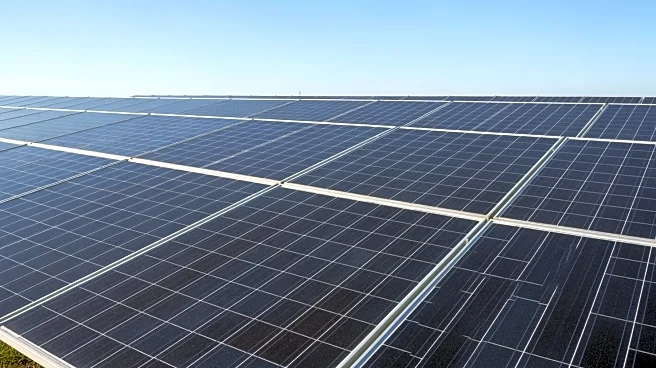What's Happening?
The U.S. is experiencing a surge in renewable energy installations due to the impending phase-out of federal tax credits for such projects. Earlier this year, a significant tax cut bill was signed, which
included provisions to phase out most tax credits for renewable energy installations at the federal level. This has led to a rush among developers to take advantage of the credits before they expire. BloombergNEF has revised its forecast, predicting record or near-record additions of wind, solar, and battery installations through 2027. Developers are accelerating their projects, ordering necessary equipment like power transformers and solar panels earlier than usual to meet eligibility requirements for the tax credits.
Why It's Important?
The phase-out of federal tax credits for renewable energy installations is a pivotal moment for the U.S. energy sector. It has prompted a significant increase in renewable energy projects, which could lead to substantial growth in the industry. This rush to complete projects before the credits expire may result in increased investment and job creation in the renewable energy sector. However, the long-term impact of the tax credit phase-out could slow down future growth once the credits are fully eliminated, potentially affecting the U.S.'s ability to meet climate goals and transition to cleaner energy sources.
What's Next?
As developers race to complete projects before the tax credits expire, the renewable energy sector is likely to see a temporary boom in installations. This could lead to increased demand for equipment and labor, potentially driving up costs. Once the credits are phased out, the industry may face challenges in maintaining growth momentum. Stakeholders, including policymakers and industry leaders, will need to consider alternative incentives or policies to support continued expansion of renewable energy in the U.S.
Beyond the Headlines
The phase-out of tax credits raises questions about the U.S.'s commitment to renewable energy and climate change mitigation. It highlights the tension between short-term economic policies and long-term environmental goals. The rush to complete projects may also lead to ethical considerations regarding labor practices and environmental impacts of accelerated construction.










